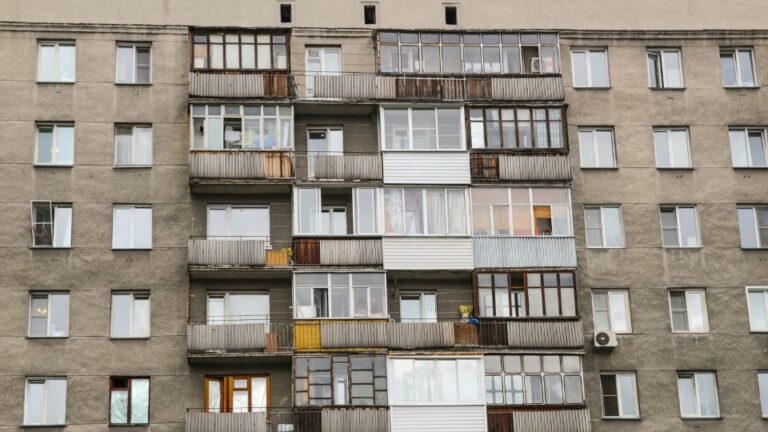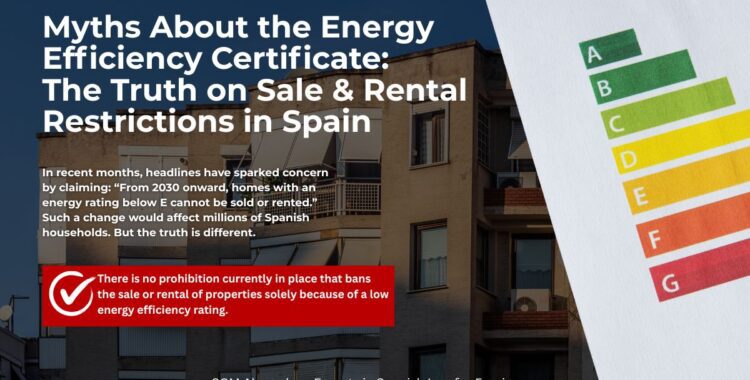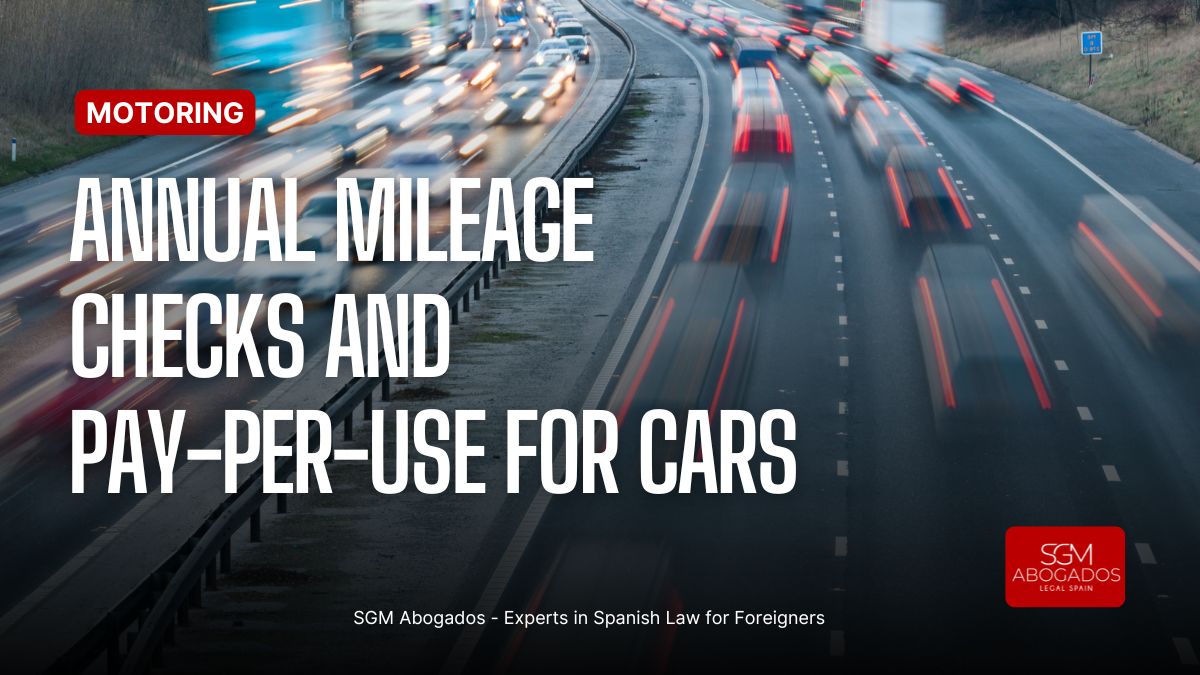Myths About the Certificado Energético
The Truth on Sale & Rental Restrictions in Spain
In recent months, headlines have sparked concern by claiming: “From 2030 onward, homes with an energy rating below E cannot be sold or rented.” Such a change would affect millions of Spanish households. But the truth is different. There is no prohibition currently in place that bans the sale or rental of properties solely because of a low energy efficiency rating. What is required under EU law is that each Member State produce a roadmap to reach zero emissions for buildings by 2050. Spain is fulfilling those obligations.
What the European Union Actually Requires
The EU has set a climate goal: by 2050, all buildings (homes, public buildings, offices) should achieve zero emissions.
Importantly, there is no requirement in the EU rules that mandates banning the sale or rental of properties with low energy ratings.
What Spain Is / Is Not Doing
The Spanish Ministry of Housing has no plans to forbid the sale or lease of homes that are rated below E.
What Spain will present to the European Commission is a gradual plan for improving energy efficiency up to 2050, without mandating an immediate ban on transactions.
Member States may choose to impose such restrictions, but they are not compelled to do so under the current directive.
How the Confusion Arose
Misinterpretations of the EU’s energy efficiency directive have caused alarm. The targets are ambitious, but ambition ≠ automatic prohibition. The discussion is often mixed up with other topics—urban regeneration, European subsidies, environmental concerns—which leads to exaggerated or misleading headlines.

What Changed August 2025: Certificate Requirement for Mortgage Appraisals
Since 12 August 2025, a valid Energy Efficiency Certificate (Certificado de Eficiencia Energética, CEE) is required when appraising a property for a mortgage. The bank or appraiser must verify that the certificate is up to date.
The regulation Order ECM/599/2025 modifies former appraisal rules by including the CEE as an obligatory factor in property valuations.
The certificate’s age cannot exceed three months. If it’s older, the appraisal may be delayed or blocked.
For completed buildings, the registered certificate must be provided; for buildings under construction or in project stage, both the certificate and the registration application must be included, ensuring consistency between data.
What the Energy Certificate Is
It shows how much energy a property uses under normal conditions, and grades efficiency on a scale from A (most efficient) to G (least efficient).
It also includes suggestions to reduce energy consumption.
Up to now, only architects and engineers could issue certificates; however, new rules allow other trained professionals to do so in existing buildings. Autonomous communities will accredit such professionals via a declaration of responsibility.
What’s Really Going to Happen by 2030
There will not be a blanket ban on selling or renting properties with low energy ratings in Spain.
Stricter requirements and incentives will gradually increase, aimed at raising the energy performance of the building stock.
The requirement for a current energy certification already affects mortgages and appraisals.
The goal is not punitive: it is a gradual transition supported by public funding, policies, and regulatory measures.
What This Means for Owners & Tenants
If you own a property with poor energy efficiency, you can still sell or lease it after 2030. There is no legal barrier now or in the EU directive forcing the denial of such transactions.
But you will increasingly see growing pressure—through regulation, subsidy programs, and the market—towards improving energy performance.
For any property transaction involving a mortgage appraisal, make sure your energy certificate is valid. Having an expired or missing certificate can delay or complicate the process.











